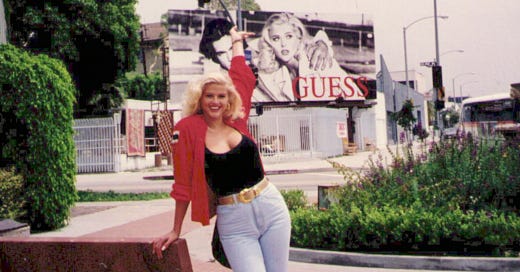A String of Documentaries Are Reckoning with Hollywood Misogyny
Are they telling a new story?
In the 2000s, while millennial girls like me moved through the end of girlhood, celebrities disintegrating in the public eye were a major cultural obsession. Famous women, of course, were at the center of the hottest scandals: Pamela’s sex tape was released in 1996, Janet’s nipplegate was 2004, Britney broke down in 2008, Anna Nicole died in 2007. The a…



